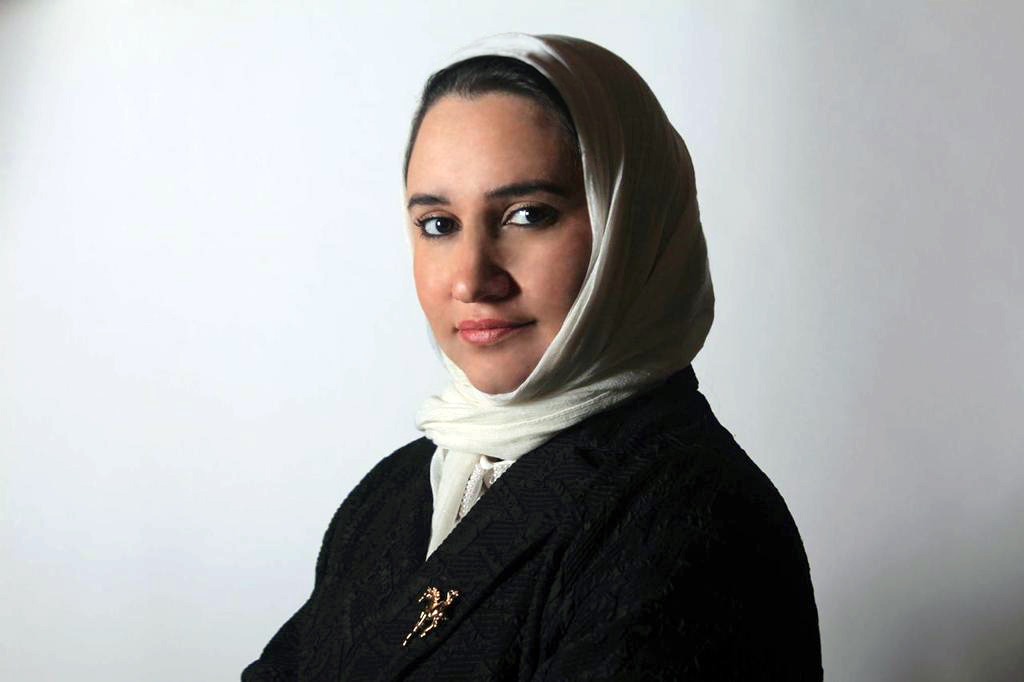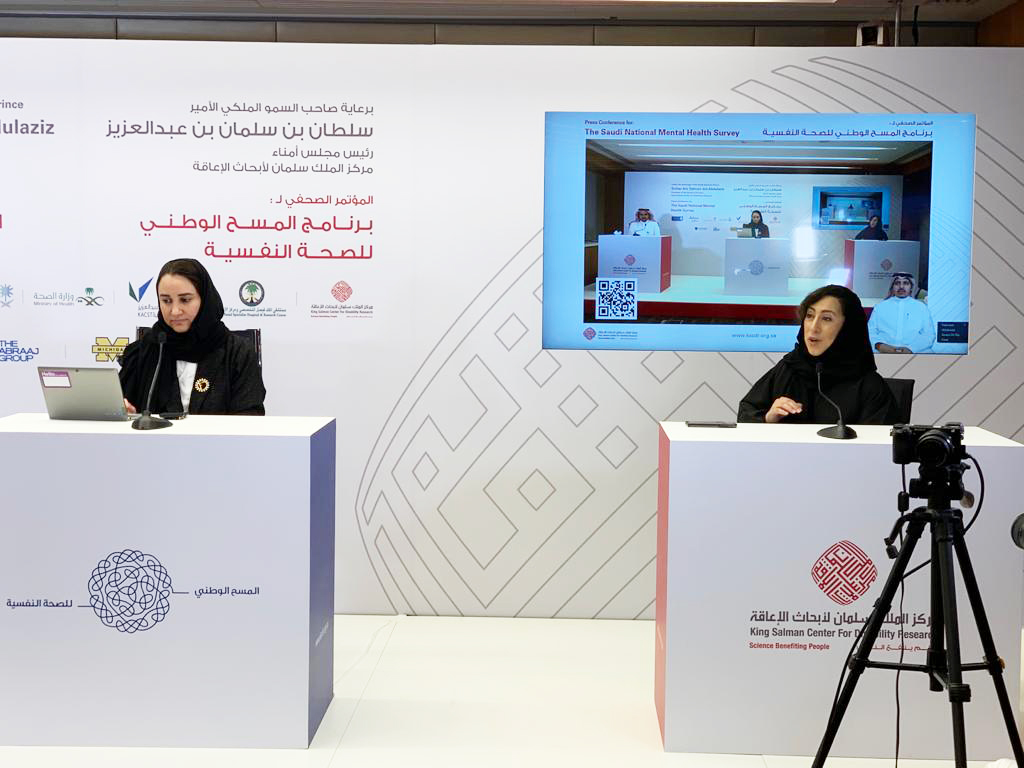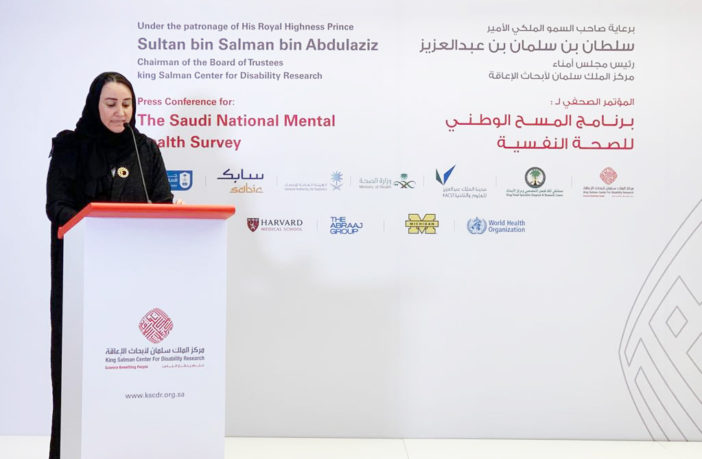The passion and dedication of HRH Prince Sultan Bin Salman Bin Abdulaziz Al Saud have brought about the King Salman Centre for Disability Research. The center has produced a lot of disability-related studies and projects, including one recently done for a very important issue: it is time to act on mental health.
Mental health disorders are a significant global public health concern affecting people of all ages, cultures, and socio-economic status. More than 75% of mental health disorders occur in people under the age of 24, with depression most often seen in students. This data energized the World Health Organization to launch the World Mental Health (WMH) Survey Initiative in collaboration with Harvard University. The findings have shown that mental health disorders cause severe impairments in personal, social, and professional functioning. These issues result in significant costs within the health care system. In 2010, the WMH Survey was used to determine the prevalence of mental disorders in Saudi Arabia.

Taking care of one’s health follows immediately after basic human needs, such as eating, drinking, and breathing. We owe much of the progress in mental and physical health to our dedicated government and leadership, but none of these advances would have been possible without our talented youth. The strength of our close international ties with other countries allows us to pool our resources, be it past knowledge, research funding, or our brilliant youth ourselves. With the support this project receives from the Ministry of Health and King Salman, I promise to lead this project to completion. With the hope that we can alleviate the suffering caused by mental health disorders and help every Saudi to fulfill their best qualities.
HRH Prince Sultan bin Salman bin Abdulaziz
Chairman of the Board of Trustees
King Salman Center for Disability Research
The King Salman Centre for Disability Research (KSCDR) created the Saudi National Mental Health Survey (SNMHS), which has been an effective asset to help with these issues. The goal of the study was to understand: 1) the prevalence of mental health problems and their burden in the Saudi community; 2) the individuals who are most at-risk in KSA; and 3) the best ways to offer mental health services to the people who need them. This project became a milestone in providing data for clinicians and healthcare policymakers to establish relevant preventive, therapeutic, and rehabilitation services in the Kingdom.
Thanks to the dedicated work of the Saudi Ministry of Health, there are currently 19 mental health institutions and more than 120 licensed psychiatric clinics in the country. Since the creation of the King Salman Center for Disability Research, King Faisal Specialist Hospital and Research Centre, they have totally supported the initiatives and studies initiated by KSCDR. Thus, the KSCDR continues to play an important role in giving a voice to the goal of national mental well-being.”
HE Dr. Tawfig Al Rabiah
Minister of Health, Saudi Arabia
The KSDCR presented the result of the eight-year study during a special event held on November 15, 2020. The opening remarks were delivered by Dr. Yasmin Al Twaijri, the principal investigator of the National Mental Health Survey Program and Senior Scientist and Head of Epidemiology Research at King Faisal Specialist Hospital and Research Centre in Riyadh.

The national representative survey sample was taken by 4,004 Saudi participants. They were both male and female, between the ages of 15-65, and were from rural and urban regions across the Kingdom. The results of the survey found that during their lifetime, about 34% of Saudis met the criteria for having a mental health condition. The occurrence of mental health issues in Saudi Arabia was comparable to that in the United States at 47.4%, New Zealand at 39.3%, France at 37.9%, and the Netherlands at 31.7%. Furthermore, there was a 40% prevalence of mental health disorders among Saudi youth, which is comparable to 52.4% of the United States, 26% in Australia, and 13.7% in the EU countries.
The Saudi National Mental Health Survey has been reviewed and approved by the University of Michigan Research Center for the outstanding effort of the team and the quality of the data collected. The findings of the study were published in the International Journal of Methods in Psychiatric Research.
Dr. Majid Al Fayyadh
Chief Executive Officer
King Faisal Specialist Hospital & Research Centre
During her presentation, Dr. Al Twaijri also noted that a slight gender bias is evident when determining the likelihood of developing a mental disorder. However, there is a noticeable difference in the type of mental disorders that emerge. In short, females are three times more likely to develop depression than are males, while males were twice as likely as females to develop bipolar disorders. These findings will open a clear dialogue about mental health and increase awareness of this issue. This will allow to have a strong educational resource that improves understanding of mental health conditions prevalent among the Saudi people. Moreover, this new data will contribute to reducing the stigma that presently exists both in Saudi Arabia and in the entire region.
Analyzing the amount of work done in this study and evaluating the results shows that mental health disorders are not only a matter of well-being but can also have serious consequences for human capital. The thoroughness of this survey asked not only about mental disorders but also about general somatic disorders, non-communicable diseases, such as diabetes. In many cases, people were aware of their mental health problems since most people experienced anxiety, stress, or depression. However, given the Kingdom’s potential, several policies and projects can and will be developed based on these findings.
Dr. Ronald C. Kessler
McNeil Family Professor of Health Care Policy, Department of Health Care Policy
Harvard Medical School

The event was attended by His Royal Highness Prince Sultan bin Salman bin Abdulaziz Al Saud; Minister of Health, Dr. Tawfiq Al Rabiah; Dr. Majed bin Ibrahim Al Fayad, Chief Executive Officer at King Faisal Specialist Hospital and Research Centre; Dr. Yousef Al Benyan, Chief Officer of SABIC; and Dr. Anas Al Faris, Head of King Abdul Aziz City for Science and Technology.
The findings of the National Mental Health Survey showed that only one in three people diagnosed with a mental disorder actually seek treatment, and even then, they do so with significant delays. Even individuals diagnosed within twelve months of the onset of their symptoms, only one in seven actually seek treatment.
The public health system must standardize and normalize mental health as part of the overall healthcare system for its citizens. We are heartened that the World Health Organization is committed to supporting the Kingdom of Saudi Arabia in this endeavor to overcome this tragic communication barrier.
Dr. Somnath Chatterji
World Health Organization
The supporting partners of this remarkable scientific initiative were the King Faisal Specialist Hospital and Research Centre, the Ministry of Health (MOH), the General Authority for Statistics at the Ministry of Economy and Planning. The King Saud University (KSU), in collaboration with the World Health Organization, Harvard University, and the University of Michigan, Ann Arbor, were among the supporting organizations, as well. The project was funded by the SABIC, the King Abdulaziz City for Science and Technology, the MOH, and the KSU.
During the press conference that followed, Dr. Abdulhamid Al Habeeb and Dr. Al Twaijri, addressed the questions from the media.
According to the SNMHS, what are the most common mental disorders found in the Saudi citizens?
As stated in the results of our survey, separation anxiety disorder was among the most common mental disorders among both males and females, 11% and 13% respectively. This was followed by depression, bipolar disorder, obsessive-compulsive disorder, and social anxiety.
During the past decade, life in Saudi Arabia has become more modern, which can be an advantage for some and a disadvantage for others. Is there a link between this modernization and the overall mental health status in the Kingdom?
Many people looked for a peaceful and balanced lifestyle before modernization and sought to become connected to the contemporary world. In past years, people’s expectations have not been challenged and tested as they are today. While this increase in the incidence of some mental disorders may not be a direct outcome of modernization, some factors are clearly associated with mental health disorders.
Since society cannot escape modernization, it is expected that health systems will use it to benefit the views of the mental health system by destigmatizing the negative connotation of those with mental disorders. The results of our research show that 80% of Saudis with mental health problems do not seek treatment due the social stigma. Therefore, it would benefit all of us if the many influential bodies, including the media, would encourage seeking help when experiencing mental issues.
Since this was a scientific study, how many survey-related articles were published in peer-reviewed journals? Based on these findings, what is your vision for future mental health projects in the Kingdom?
The survey contributed to the worldwide publication of over twenty scientific articles in several peer-reviewed journals. In September 2020, the latest article was published in the International Journal of Methods in Psychiatric Research. We would like to emphasize that this journal published a special issue devoted entirely to the research methodology and results of the Saudi National Mental Health Survey. It was a tremendous honor for our work to receive such recognition.
In any discussion about our vision for the future, we strive to leverage the research findings and implement intervention strategies that specifically focus on Saudi youth. Since young people comprise the majority of the Kingdom’s population, our priority is to find intervention and support strategies for young people.
Since the launch of the National Mental Health Survey; Health and Stress, we were aware that this task was by no means going to be an easy one. We publicly confirmed that the effort needed to accomplish this would be massive. However, we remained determined to complete this task by utilizing the finest professional and scientific standards. It was a path laden with enthusiasm, challenges, and obstacles. Every time we felt dismayed, we gathered our strength and honed our abilities. We made sure to remember the noble purpose, great value, and substantial need for this project in our beloved homeland and society.
Dr. Yasmin Al Twaijri
King Faisal Specialist Hospital & Research Centre
Why are young people in Saudi Arabia more likely to have mental health disorders compared to other age groups in the country? How do these results compare with those in the Middle East and globally?
Mental health disorders range in intensity, life expectancy, and the appearance of the symptoms. Many of these symptoms begin to appear around the same time that teens start to develop their personality. When suffering from many of these issues, most young people struggle silently or are unaware of their condition. Besides parents, who do not reach out to a physician may become insensitive or accept some of the symptoms. Since the behaviors appear often, it is thought to be a characteristic of ‘growing up.’ For that reason, it is vitally important to raise awareness of this problem, normalize it, and develop diagnostic programs for children before adolescence. This is an issue that must be dealt with immediately.
Very few countries in the Middle East and Arab region can afford and organize a mental health survey of this magnitude. Therefore, we cannot present an accurate comparison at the moment. However, several studies conducted and supported by WHO show that Saudi Arabia is on an equal par with many developed countries, including the European Union and the Americas. We are aware that mental health issues have become a public health problem around the world.
Much of the scientific research process will continue where others have ended. How can interested researchers and students participate in the third phase of this research?
Shortly, the King Salman Center for Disability Research will allow researchers and enthusiastic students to apply to join the research team. However, each applicant must complete the necessary training. Once a person becomes a team member, he/she will work with us and contribute to the data collection, research, and publication.
Recalling the large and quite diverse team of those academics, trained researchers, and the staff of volunteers involved in this project, can you discuss the importance of team-work and collaboration in such a vast national initiative?
One of the main reasons that led to the success of this survey was the harmonious attitude of the research team. This project would not have produced such remarkable results without the enthusiasm and dedication of each member of our team. We hope to see this same commitment given to every future research project in the Kingdom.
All of this success was made possible by the opportunity for us to work with many of the brightest people in this field. Not only were the research team members committed to their vision, but they were also very empathetic, close-knit, and kind to each other. When team members respect each other, and the ideas that others offer are accepted, success is not far off.
We hope many who read this report will keep in mind that the Saudi people are raised with the concept of helping those in need. However, at times, we have ignored the feelings of fear and anxiety of others. We pledge that in the future, we will learn to communicate better, help more, and be kinder to ourselves and others.
Source: Saudi National Mental Health Survey Technical Report. Riyadh: King Salman Center for Disability Research. www.healthandstress.org.sa




